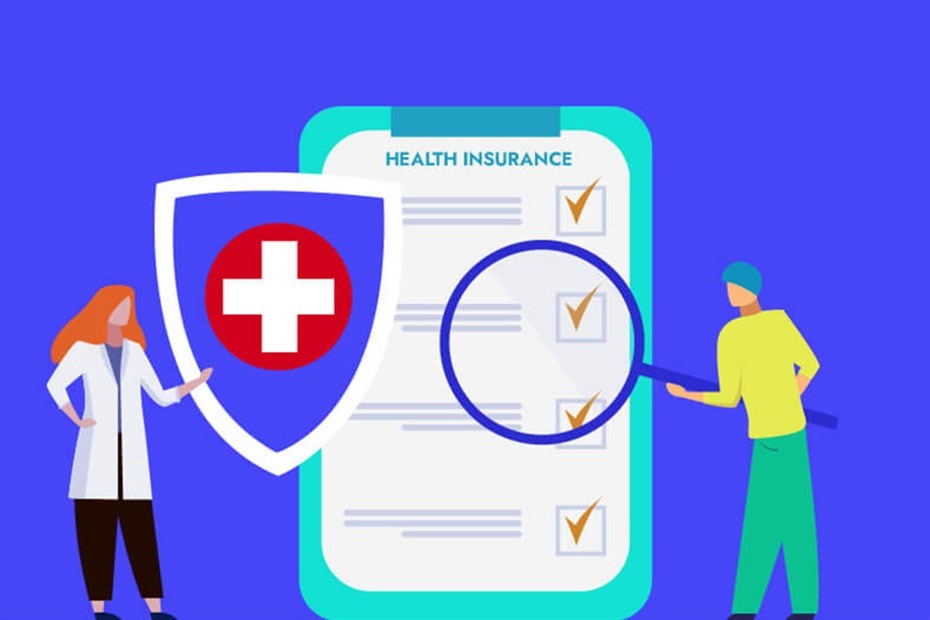Insurance for health is an essential element of personal and financial wellbeing within the United States. The maze of health insurance could seem daunting, however understanding the options available and the steps that are involved will benefit to secure the insurance that you require. This article will serve details of the actions you need to take in order for obtaining health insurance within the USA.
1. Understanding Your Options

The initial step to acquiring insurance for health is to understand the many types available.
- Employer-sponsored Insurance Employers often offer health insurance as part of the benefits package. If you’re employ, it is usually the most cost-effective and simple choice.
- Marketplace Insurance: also known under the name of Health Insurance Marketplace or Exchange Marketplace Insurance is a program that allows families and individuals to get insurance coverage if they are not covered by their employer. Marketplace insurance Marketplace was created as a result the Affordable Care Act (ACA).
- Medicaid Medicaid: A federal and state-wide program providing health insurance to families and individuals who have poor income. Benefits and eligibility vary from state to the state.
- Medicare The Medicare program is a federal program which provides health protection for people who are aged either 65 or older or younger than 65, and suffer from disabilities, irrespective of your income.
- Private Insurance is purchased directly through insurance companies. It is a great feature for those who do not be eligible for other kinds of insurance.
2. Assessing Your Needs
Be aware of the following elements in deciding on an insurance coverage for health:
- requirements for coverage Decide what kind of health-related needs you require. It includes regular check-ups as well as emergency care as well as prescription drugs and mental health care services and visits to a specialist.
- Budget Consider your budget and determine how much you’ll be able to cover costs for premiums, deductibles, copays and other out-of-pocket expenditures.
- Network Find out if your favorite doctors or hospitals are part of the network.
- Extra Notes In the event that you are suffering from particular health issues or require treatment regularly, warrant the plan covers the needs of those with specific conditions.
3. Enrolling in Employer-Sponsored Insurance
If you work for a company that offers health insurance, you can:
- OPEN ENROLLMENT PERIOD Many employers provide an open enrollment period at least once each year. During this time, you are able to sign up to receive health insurance.
- New employee enrollment: If you’re an employee who is new usually are given a certain timeframe (usually between 30 and 60 days) to sign up for an insurance policy after the date of your hiring.
- Life events that qualify as qualifying Examples of qualifying life events include the wedding, birth of a child, losing other health coverage can allow you to sign up out of the open enrollment time.
4. Using the Health Insurance Marketplace
If you don’t get insurance through your employer:
- Open Enrollment Time Open Enrollment Period: Open Enrollment Period: Marketplace Open Enrollment Period usually begins in November and runs until the 15th of December each year, however, dates may change.
- Special enrollment periods The possibility exists that you could be eligible for a Special Period of Enrollment when you go through some life-changing events, like losing insurance, moving, becoming married or even having a child.
- How to apply for coverage The application process is on the internet through Healthcare.gov via phone via mail or in person, with the benefit from a navigator or broker.
- Subsidies Dependent on your earnings, you could be eligible for tax credits on premiums or cost-sharing cuts in order to benefit cut your insurance expenses.
5. Applying for Medicaid or Medicare

- Medicaid Medicaid: Apply to the State’s Medicaid office. The eligibility criteria are based on the size of your household, income as well as other aspects. Certain states have increased Medicaid in the ACA and made more qualified.
- Medicare Application to your Social Security Administration. You are able to sign up for Medicare at the time of your initial enrollment Period. This begins 3 months prior to the date you turn 65, and lasts for three months following the month in which that you reach the age of 65. Additional enrollment periods are accessible under certain circumstances.
6. Purchasing Private Insurance
If the other choices aren’t appropriate:
- Search Plans: Compare plans from various insurance companies. It is possible to do this via the websites of insurance firms as well as insurance brokers’ websites, and online comparison sites.
- Join When you’ve chosen a plan, you will be able to sign up directly with the insurance provider.
Conclusion
The process of obtaining health insurance within the USA involves understanding your options and taking a look at your own personal requirements as well as your specific situation. What you can do is get insurance through your employer, Marketplace, Medicaid, Medicare or even a private insurer There are a variety of avenues for acquiring protection. If you follow the guidelines in this document to benefit you be more comfortable with the process and warrant you and your loved ones get the coverage you require.
Q&A
How much does health insurance cost in the USA?
Group health insurance
Individuals enrolled in group health plans paid an average annual premium of $8,435 in 2023 (about $703 per month), according to data from independent health and medical research firm KFF. For families, the total annual premium averaged at $23,968 — or about $1,997 per month.
Can a non-US citizen get health insurance?
If you’re a lawfully present immigrant, you can get Marketplace coverage. You may qualify for lower costs on monthly premiums and extra savings on out-of-pocket costs based on your income. A measure of income issued every year by the Department of Health and Human Services (HHS).
What is the requirement for health insurance USA?
Health insurance is not mandatory at the federal level for adults. While there is no federal requirement for adults to have health insurance, it’s essential to consider the importance of having coverage to protect your health and finances in the event of unexpected medical expenses.




